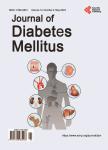Diabetes Management in Resource Poor Countries
Diabetes Management in Resource Poor Countries作者机构:University of Toledo College of Medicine Toledo Ohio USA
出 版 物:《Journal of Diabetes Mellitus》 (糖尿病(英文))
年 卷 期:2019年第9卷第1期
页 面:24-30页
学科分类:1002[医学-临床医学] 100201[医学-内科学(含:心血管病、血液病、呼吸系病、消化系病、内分泌与代谢病、肾病、风湿病、传染病)] 10[医学]
主 题:Type II Diabetes Global Health Guatemala Health Education Health Beliefs
摘 要:The aim of this study was to evaluate the diabetes status and health beliefs of individuals living in villages in Northeast Guatemala. Our study explored current understanding of diabetes in the Peten region of Guatemala concerning the cause, treatment, and effect of type two diabetes by engaging and interviewing 21 diabetic patients in a qualitative study. Interview results showed that among study participants, the cause of diabetes was often “unknown. With an average of 3.5 years of education among survey participants and many reporting being mostly or fully illiterate, it is likely that health education status plays a major role in their concept of diabetes. The majority of responses claimed some form of “asusto—defined as a negative emotional event causing physical maladies—to have caused their diabetes. Patient surveys revealed that Gods and prayer ranked the highest among factors controlling their diabetes, with medications being seen as a tertiary control factor, as seen in Figure 1. Only two study participants (2/21) ranked diet/exercise as more impactful on their diabetes than gods/prayer. Survey responses also show that most individuals agree that taking their medications is important, with the most common reported barriers to control of their blood sugar being cost of medications and lifestyle barriers. Altogether, lack of education and resource availability appears to be the most heavily implicated reasons why uncontrolled diabetes is on the rise in Guatemala—it is clear that health education needs to be a major part of therapeutic efforts in this region.



